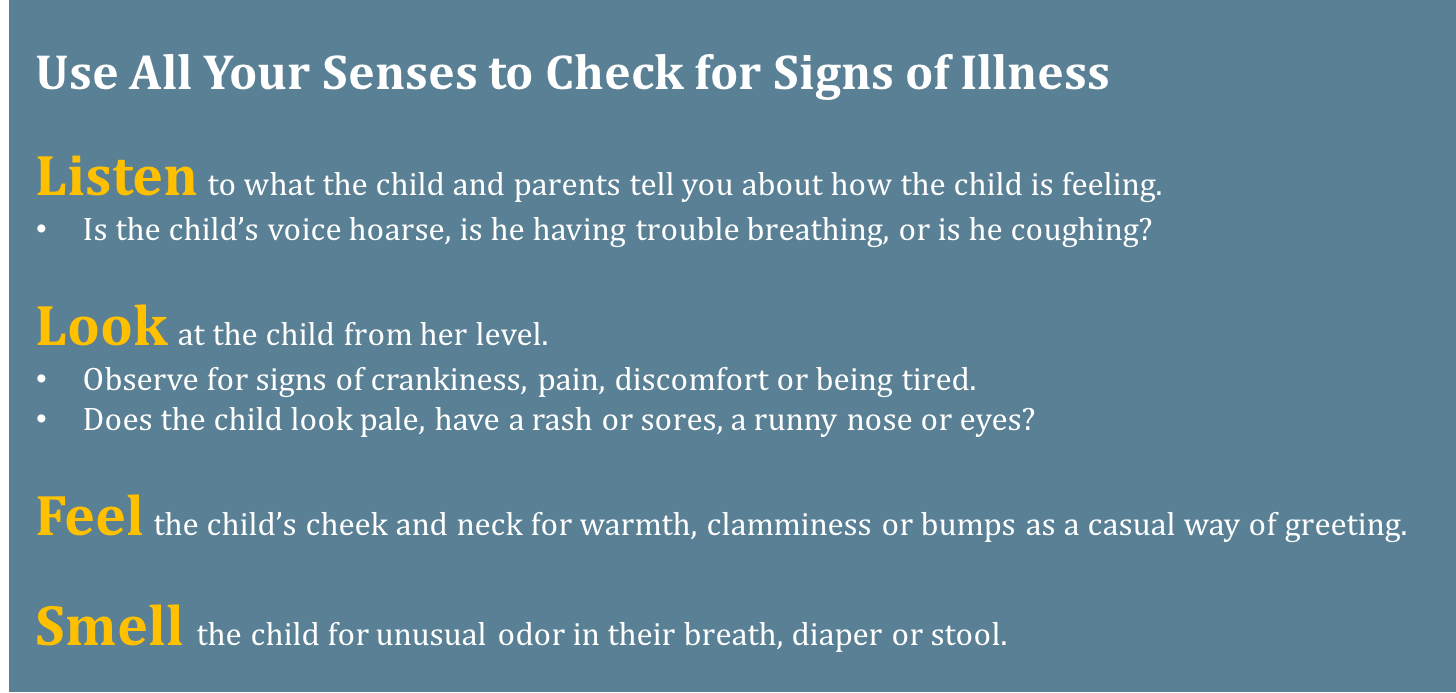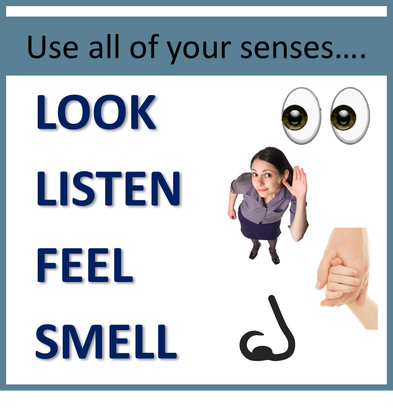Daily Health Check |
Page 5 |
Your first responsibility in keeping children healthy while in your care is to check them for signs of illness when they arrive, as well as throughout the day.
When are children too ill?
Children with common colds do not need to stay home. Usually a child has already exposed others before presenting symptoms. Refer to your local health department to get a list of contagious and non-contagious illnesses. Excluding or isolating children with non-contagious, mild illnesses can be a hardship on the family and child.
The center should have a clear policy on excluding a child from care. Some infections such as chickenpox, hepatitis, and meningitis require the child to stay home for a lengthy recovery period. The policy should be included in the Parent Handbook, and parents should be encouraged to have a back-up plan for their child’s care when their child is too sick to be in your program. If children are uncomfortable, disoriented, or irritable, they are better off at home getting the rest and individual attention they need.
Children who become ill while in your care should be isolated. Have them lie down in a quiet space away from the other children, but within view of the staff. Staff should supervise ill children at all times. Contact the parents to come pick up their child. Your responsibilities include the following:
- Keep a confidential, individualized, written record in the child’s file that includes the date of an illness or injury, treatment provided and names of staff providing the treatment. (See your Guidebook / Guide for sample reporting forms)
- If you suspect the child has a communicable disease, remember to sanitize all equipment that the ill child used.
- If an injury or illness results in a visit to the child’s doctor and includes casting, stitches, or hospitalization, you are required to notify your child care licensor.
- Notify parents in writing when their children have been exposed to infectious diseases or parasites. The notification may be either a letter to families or posting for all in a visible location.
|
Excluding children with many mild infectious diseases is likely to have only a minor impact on the incidence of infection among other children in the early childhood program and the staff. A clear, up-to-date exclusion policy that is shared with parents will help avoid conflict between educators, parents and health care providers. When formulating exclusion policies, focus on the needs and behavior of the ill child and ability of the staff in the program to meet those needs without compromising the care of other children in the group.
|



